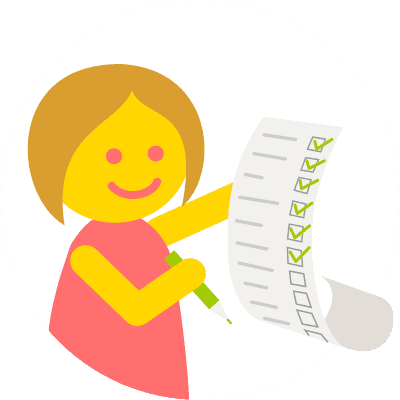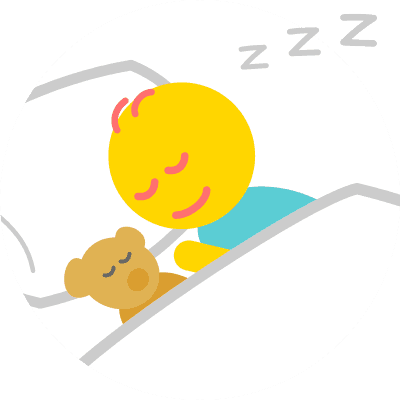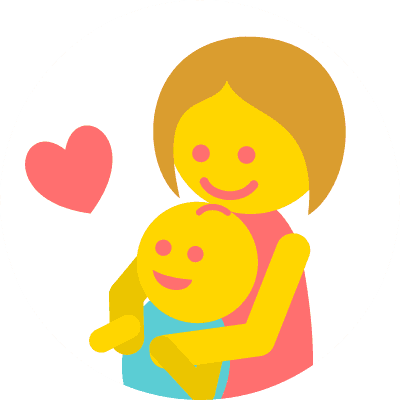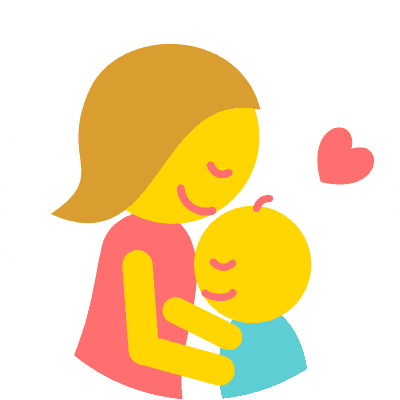Do Babysitters Have To Pay Taxes? (Yes, and Here's How)


Written & Illustrated by
Matthew James Taylor
Kidsit Founder, General Manager
Key Takeaways
- Yes, babysitters must pay taxes on their income: Whether you're paid in cash or through other methods, all earnings are considered taxable and should be reported.
- Income thresholds apply: If your total income exceeds the tax-free threshold, you are required to lodge a tax return and pay taxes accordingly.
- Your employment status matters: If you're classified as an employee, your employer is responsible for withholding tax from your wages.
- Record-keeping is essential: Maintain accurate records of all payments received, including dates, amounts, and the nature of the services provided, to ensure compliance and facilitate the tax filing process.
- Seek professional advice if unsure: If you're uncertain about your tax obligations or employment classification, consult with a tax professional for guidance tailored to your specific situation.
Babysitting is an awesome way to earn a little bit of extra money or even a full-time income. But what happens when tax season comes around?
Do babysitters have to pay taxes? Generally yes, but it will depend on where you live and how much income you earn from babysitting each year. Money earned from babysitting is considered taxable income and you should be declaring it on your taxes. Even if you get paid in cash.
In this article, I'll explain if babysitters need to pay taxes and different situations and exceptions that might apply to you.
At What Age Do Babysitters Need To Start Filing Tax Returns?
There's no specific age when babysitters need to start paying taxes.
You need to look at the amount of income earned during the year, as opposed to a person's age when deciding if you need to file a tax return.
Most first-world countries like America, Australia, Canada, and England all have progressive tax systems. That means the more income that you earn during a year, the higher of a tax rate you're expected to pay.
At the lowest level, everyone is entitled to a basic personal amount. This is the maximum amount you're allowed to earn each year before you could be required to start paying taxes.
The basic personal amount is different in each country and changes each year, so you'll need to verify what the basic personal amount is in your country. But generally, you can earn around $10,000 per year before having to pay any taxes.
Note that this amount includes all of your income for the year. So if you have another part-time or full-time job that puts you over the basic personal amount, you'll probably need to declare your babysitting income for tax purposes. Even if you only made a couple of hundred dollars over the course of the entire year from babysitting.
If you work for a babysitting agency and receive a pay stub each week, then most of your taxes will already have been withheld and paid directly to the government. But if you're a self-employed babysitter, you're expected to put some if your babysitting income away to pay your taxes at the end of the year.
There are some other factors that also may determine whether you need to file a tax return, like your dependency status. For example, if your parents claim you as a dependant on their tax returns then your income is only non-taxable to a much lower threshold. Normally closer to $1,000 per year.
How Are Babysitters Categorized By Tax Authorities?
Babysitters are normally considered childcare providers, regardless of their age.
That means there's no distinction between babysitters and other kinds of childcare providers like daycares or nannies.
It doesn't matter if you babysit in your own home, in the child's home, or at a different location. You still need to include any compensation that you received for babysitting on your tax return.
Are Babysitters Considered Employees Or Independent Contractors For Tax Purposes?
How much tax you'll need to pay and what credits and exemptions you may be entitled to can largely depend on whether you're considered an employee or an independent contractor when you're working as a babysitter. It will also change where your babysitting income gets listed on your tax return.
You need to decide with the family you're babysitting for in advance if you're going to be considered an independent contractor or a household employee. That way there won't be understandings or tax issues later on.
Are You An Employee?
If the parents that you babysit for are able to control what you do, how you do it, and when you do it, then tax authorities might consider them to be your employer.
If they're your employer, then you should receive a payment summary each year that shows how much tax they've withheld and submitted on your behalf. In the US this is called a W-2 form, or in Canada, it's a T4 slip. In addition to income tax, employers might be required to withhold money from your paycheck for things like retirement benefits, Social Security, or healthcare.
If you babysit full-time for a single family and have a set schedule, then you're likely considered an employee.
Are You An Independent Contractor?
You are likely considered an independent contractor for tax purposes if the people you babysit for don't have a right to control what you do when you do it, or how you do it.
Of course, parents will give you specific instructions to follow when you're babysitting and you'll work an agreed upon number of hours. But the difference is that you're free to accept or decline any offer for babysitting and it won't affect your other babysitting jobs. One family can't force you to babysit for them if you're busy doing something else at that time instead.
If you babysit for several families or on a part-time or irregular basis, then you're most likely considered to be an independent contractor for tax purposes.
If that's the case, then the families you babysit for aren't required to withhold any money from your pay for tax purposes. You'll need to report all the income you earned from babysitting on your own taxes.
It's important to file your taxes for your babysitting income because parents are often able to deduct babysitting expenses on their own tax returns. In this case, they often list which babysitter they've hired and how much they paid, which can inform the government that you've been paid for your babysitting services. In that case, they're expecting to see the same amount listed on your own tax return, or it may raise flags that could trigger a tax audit.
In some places, there may be a separate threshold for when you need to declare self-employment income as opposed to employment income. In the United States, you need to declare your self-employment income if you earned more than $400 during the year.
What If I'm Babysitting For A Relative?
If you only babysit for a relative, then things may be considered a little different.
Usually, if you're babysitting the child of a relative, you have less of a profit motive and are doing it to help, rather than as a business.
For that reason, it wouldn't be considered self-employment tax in most places. You're doing it more as a favor than trying to operate a business.
So income earned if you're only babysitting for relatives wouldn't be subject to a self-employment tax, although you'll still need to report it as a source of taxable income on your tax return.
What Is The "Nanny Tax" And When Does It Apply To Babysitters?
In the United States, a nanny tax is a tax that needs to be paid by families that hire household help if the pay exceeds a specific threshold amount each year. It applies to maids, butlers, home healthcare providers, cleaning staff, and babysitters if they exceed the threshold amount.
Usually, the nanny tax will apply to a babysitter who earns more than around $2,000 in a calendar year or over $1,000 in a quarter (any four-month period.)
Other countries may have similar laws regarding domestic workers.
The nanny tax can be good for you as a babysitter. It's meant to help household workers by classing them as household employees rather than independent contractors, which means their employer has to pay into programs like Social Security, healthcare, and unemployment taxes. As well as withholding some income taxes and submitting them to the government on the babysitter's behalf.
Under this law, the parents you babysit for could qualify for the nanny tax even if you're only babysitting every weekend and earning $50 each time, which would put you over the $2,000 limit allowed each year.
Are There Any Exceptions?
The nanny tax doesn't apply to babysitters who are under 18 years old.
They don't apply if you're not primarily engaged in babysitting as a household employment profession. For example, even if you're over 18, if you're a full-time student then families could argue that you aren't babysitting as a full-time profession.
A nanny tax also doesn't apply to the family if you're hired through an employment agency. In that case, the agency that you work for is your employer and they're the ones responsible for paying the nanny tax.
Is The Nanny Tax Good Or Bad For Me As A Babysitter?
On the surface, the nanny tax might seem like a bad thing because you're getting a bunch of deductions taken off of your paycheck during each pay period. But it comes with a lot of benefits too.
If you qualify for the nanny tax and you're an employee, that entitles you to benefits and protections such as unemployment benefits, social security, and health insurance. It also provides you with a verifiable employment history that you may need to apply for a credit card, mortgage, or loan.
If you're babysitting as an independent contractor and lose your regular babysitting job, then you may not be entitled to unemployment or other benefits. So the nanny tax can actually be a good safety net, especially if all of your babysitting income is coming from one family.
Learn more about which employment category you fall under by reading our guide: Is babysitting considered self-employment?
What If I Get Paid Cash For Babysitting? Do I Still Need To Declare It On My Taxes?
You need to declare babysitting income on your tax return even if you get paid cash.
Although getting paid in cash is less traceable by the government than getting paid by check or electronically, the tax authorities still have some pretty sneaky ways of tying you back to your babysitting activities.
So it's better to be honest and just declare your full babysitting income on your taxes, instead of risking fines or penalties later on.
What If The Parent I Babysit For Requests A Tax Receipt?
Parents might ask you to give them a receipt for any money they pay you for babysitting.
The reason they do this is usually that they want to claim the money they pay to you for babysitting as a childcare expense on their own tax return. The government often asks for proof or evidence from parents who claim this deduction, so parents need to have proof in writing showing that they actually paid you. Especially if they're paying cash and have no other paper trail.
You can print out your own receipts. Alternatively, office supply stores sell receipt books. These are little booklets with forms that you just need to fill out in order to issue receipts for your babysitting services. It usually costs less than $5 for a booklet of 50 receipts, and you'll be able to easily create a duplicate carbon copy of each receipt that you issue to keep for your own records. That makes it easy for you to keep track of all the income that you earned from babysitting once tax time comes around too.
In order for your babysitting receipt to be valid, you should make sure to include:
- Your name
- Your address
- Your social insurance number
- The date the service was provided
- A description of the service you provided (babysitting services)
- The full amount of your fee
- The full name of the child or children you cared for
- Confirmation of payment ("Payment received in full from Mrs. Smith")
Can I Claim Babysitting Expenses On My Taxes?
If you're considered an employee or you work for a babysitting agency, then there aren't really any babysitting expenses that you can claim.
If you're a self-employed babysitter, then you may be entitled to deduct certain expenses on your tax return, see our article Can you write off babysitting expenses to learn more.
For example, if you need to drive a child that you're babysitting around as part of your duties, then you can deduct mileage for any trips. However, the basic costs of getting to and from your babysitting assignments aren't usually tax deductible.
In order for a business expense to be deductible, it has to be considered necessary and ordinary. A necessary expense is one that's considered to be appropriate and helpful for your business and doesn't necessarily need to be something you couldn't do the job without. An ordinary expense is one that is common or accepted in your line of work.
Some expenses that you could deduct as a babysitter if you're an independent contractor include:
- Communication costs. Such as data plans, cell phones, and internet services.
- Advertising costs. If you have a website or business cards.
- Office supplies. Like printer ink, paper, and envelopes.
- Licenses that are required for your job or membership fees paid to associations you belong to. Such as First Aid and CPR certification, or your babysitting course.
- Membership for babysitting websites/apps. Such as our Kidsit Pro Membership.
- Supplies. If you babysit at your own home, then you can deduct any diapers, toys or food that you buy for kids that you babysit.
It's important to note that you can only deduct the amount of each item that you use for your business.
So if you use your cell phone for both personal and business, then you'd need to figure out how much you use it for each. If 75% of the time you use your phone plan for personal calls and texts, then you could only deduct 25% of your phone bill as a business expense.
If you use your printer for both printing receipts and babysitting flyers as well as schoolwork, then you need to estimate how much is used for each and only deduct the amount that specifically relates to babysitting.
So If My Babysitting Income Is Under The Basic Personal Amount, I Don't Need To File Taxes?
Yes, legally if the income that you earn during the year falls below the basic personal amount, then you don't need to bother completing a tax return in most cases.
However, I'd recommend filing a tax return anyway.
That's because you may be entitled to refundable tax credits even if you don't earn enough money to pay taxes. All you have to do is claim the little income that you earned and file a tax return, and you become eligible for a tax refund if you've earned certain tax credits.
If you earn less than the personal amount but you're eligible for a $500 refundable tax credit, the government will send you an electronic payment or check for $500! Not bad for taking a bit of time to fill out a tax return.
Tax credits are a case of "use it or lose it."And if you don't file a tax return, you don't know what you might be entitled to!
Especially if you're in college or university, you likely qualify for some pretty significant education-related tax credits that you'll want to get back.
How Do I File My Babysitting Taxes?
Filing your taxes used to be quite a complicated and intimidating process.
Now, most tax authorities make it super easy to file your taxes each year. Most government tax agencies provide free software that you can use to submit your taxes online.
The software walks you through a step-by-step process asking for different information to determine how much money you made during the year, as well as what tax credits and benefits might apply to you as a taxpayer.
In The United States, you can use IRS Free File if your gross income is $66,000 or less for the year.
In Australia, you can lodge your tax return online using MyTax. You need a myGov account linked to the Australian Taxation Office to complete your tax return. It's entirely web-based so you don't need to download anything, and you can complete your return on a tablet, computer, or smartphone.
In Canada, you can electronically file your tax return using NETFILE. You'll need to download one of the NETFILE-certified software from the Canada Revenue Agency website to complete your return, and then securely upload your file through the CRA website once you're done.
In the UK you can file your taxes electronically through HM Revenue and Customs, but if you're filing for the first time you'll need to get a Unique Taxpayer Reference (UTR) first before you can enroll in the online service and activate your account.



























